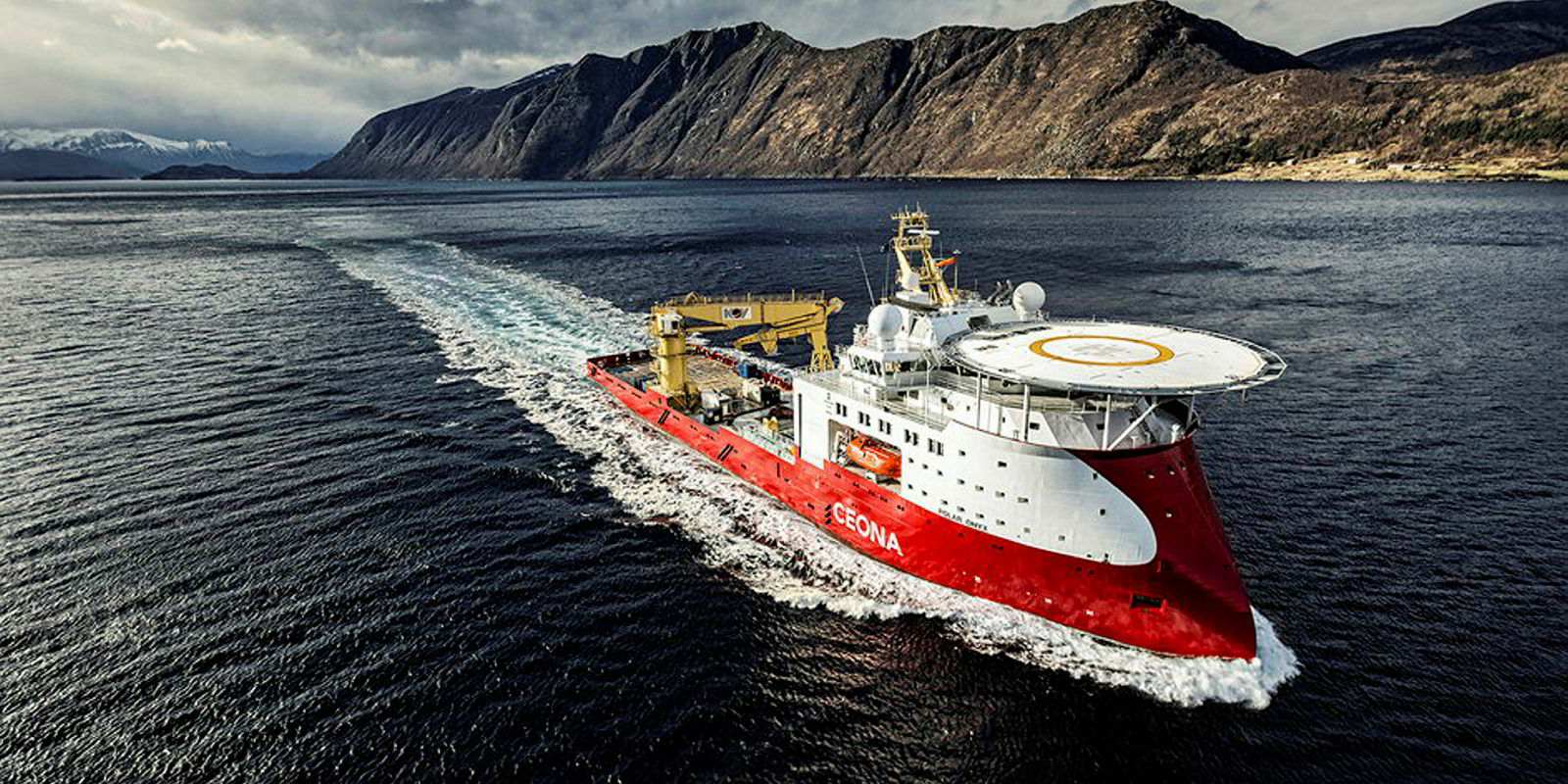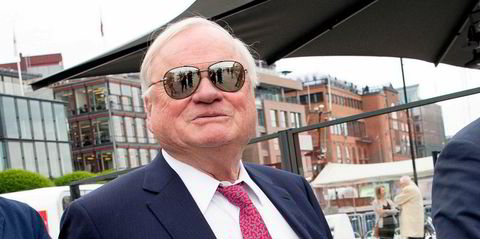GC Rieber Shipping is not just hiring offshore veteran Christian Berg as its new chief executive, it is also conspicuously adopting his business model.
Berg’s start-up, Bech Offshore, entered the market only this year with the goal of serving a distressed niche for offshore support vessels (OSVs).
Bech aimed to offer independent commercial management and advisory services, especially for banks with repossessed ships or other investors seeking an opportunistic entry into the sector’s lowest point in 30 years.
Rather than signal the end of Bech though, the start-up featured prominently in Oslo-listed GC Rieber’s announcement of Berg’s appointment, and the companies will be merged.
GC Rieber chairman Paul Christian Rieber says the company wanted Berg for his abilities and approach, first and foremost.
“The major interest for us in this situation was Christian Berg’s capabilities,” Rieber said. “We started out with him as a very interesting candidate for the new chief executive.”
Berg brings with him decades of offshore experience, including on the commercial side of Siem Offshore and as chief executive of Viking Supply Ships, which he steered through a restructuring process before stepping down in April.
“Then we looked into the activities of his Bech Offshore and obviously it has not become a big operation in such a short time,” Rieber said.
“We realised that Christian’s ideas were pretty much the same as ours. We have been managing vessels for others on a number of occasions, so it was very familiar to us and so we thought we could also capitalise on Bech Offshore.”
Rieber says in the past GC Rieber has been involved mostly in technical management for others but not so much the commercial management of marketing those ships.
Quite a number of independent commercial managers popped up in the last severe OSV downturn in 1980s but they are a rarity now because offshore has been so strong for so long.
Independence was one of Bech’s main selling points. This was true in seeking to market vessels either for owners or on behalf of private equity, banks or investors, which lack the organisations to tackle the commercial side.
The main disadvantage of attaching Bech to GC Rieber is that it is no longer independent of an owner. Could this be a stumbling block?
“Well, maybe, maybe not,” Rieber said. “It is, of course, a balance because you can easily come into areas where you have conflicting interests."
Rieber says one obvious conflict would be if a GC Rieber-owned vessel and a managed unit both compete for the same tender. But he adds that a strong mitigating factor for possible conflict is GC Rieber’s specialisation into three segments — seismic, subsea and ice-class research.
“I think, in some cases, banks and private equity would accept to go with an existing shipowner like ours," he said. "In other cases, they would like it to be a truly independent actor that does not have ships. It boils down to what type of ships we end up managing because, of course, offshore vessels are very specialised nowadays.”
Taking stakes in managed ships is one way an owner can show its interests are aligned with those of the clients.
“Exactly. We have done it before, actually, and we are doing it now,” Rieber said. “We could enlarge the managed fleet, while taking stakes in several vessels. It could be three vessels with one-third in each, just to simplify it.”
Rieber says an example from years past was when GC Rieber owned the first Ramform-type seismic vessel and managed about five for Petroleum Geo-Services (PGS).
Berg replaces Irene Waage Basili, who earlier shifted over to head up Shearwater GeoServices, GC Rieber’s play in the seismic sector set up last year in which it holds a 50% stake. GC Rieber manages Shearwater’s seismic vessels, which it had previously owned, and Norway’s Rasmussen group is the other 50% investor.
Rieber says the idea of taking stakes, via the Bech model, is similar to the Shearwater example. GC Rieber is still coping with poor markets, and the Shearwater hive-off is the key component of its restructuring.
“Everybody is sort of speaking with everybody these days, so all companies are looking around for new constellations or new opportunities and, therefore, yes, we will definitely be looking at new projects but maybe they will not come this year. Maybe they will come next year,” Rieber said.
“We are open to that, but we are also waiting to see how this market develops because it may be another few very difficult years.”
Rieber adds that GC Rieber is preparing for a new paradigm, pointing to the mega-merger resulting in SolstadFarstad as an example of the large shifts now happening.
“You see new structures coming up like SolstadFarstad, with 150 units, so the whole game will have changed and we have to adapt to that,” he said. “It will come back again and can eventually be a good market, but it will be in a very different way than it used to be.”





